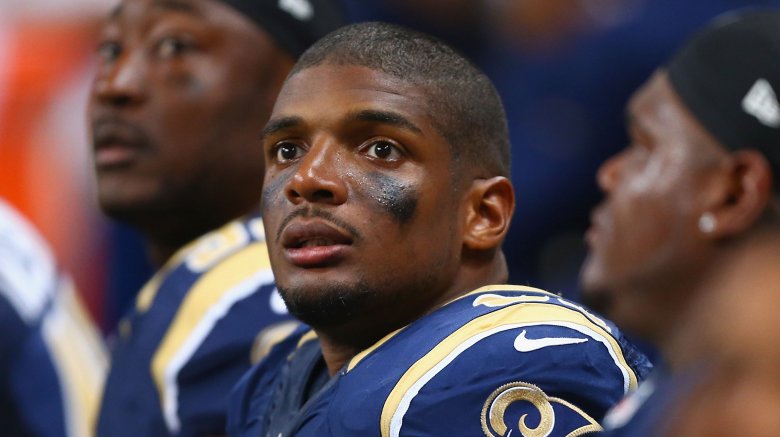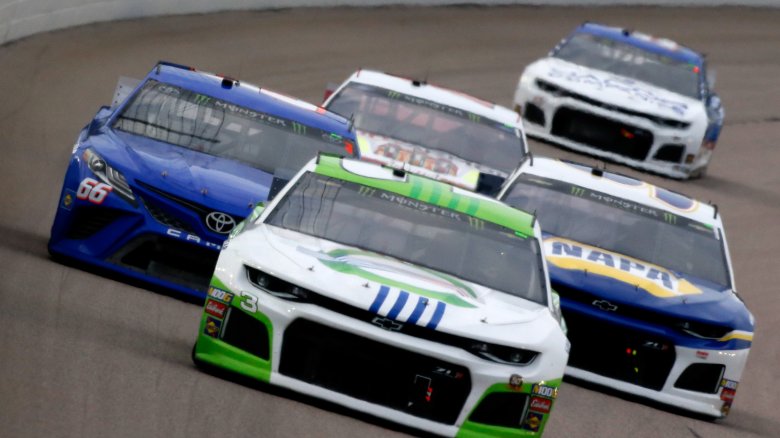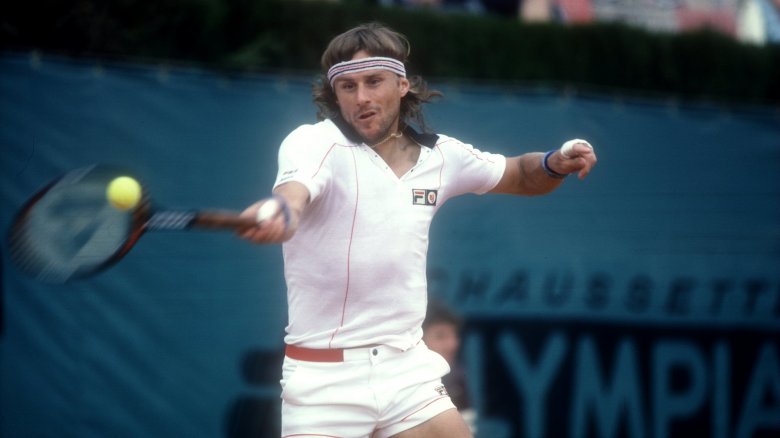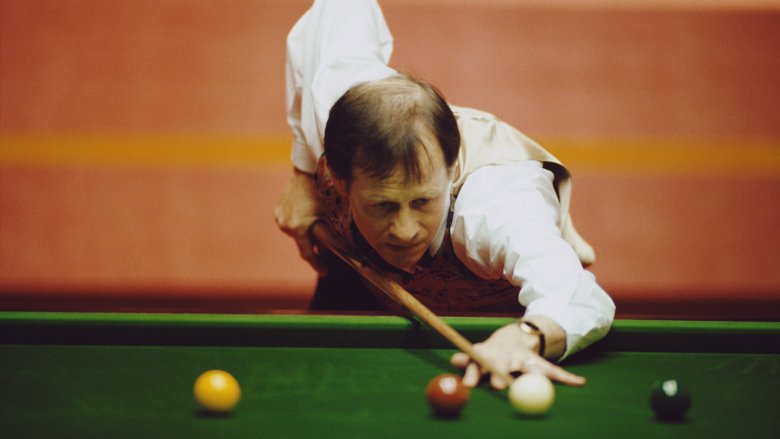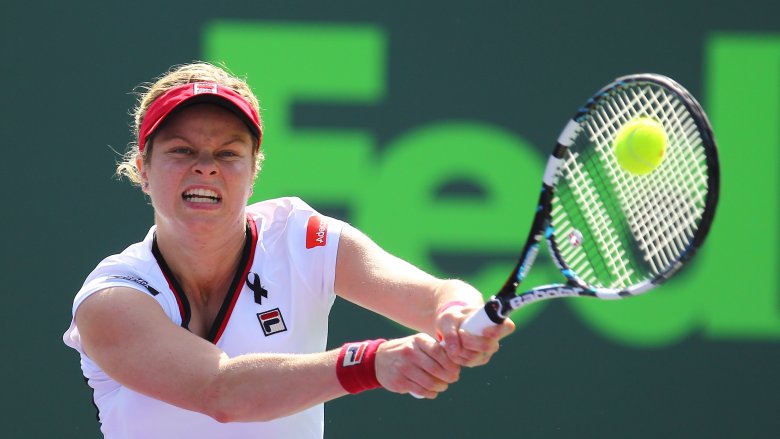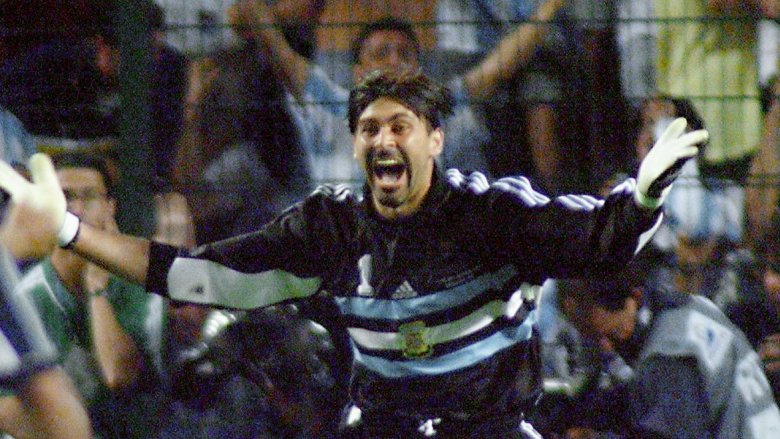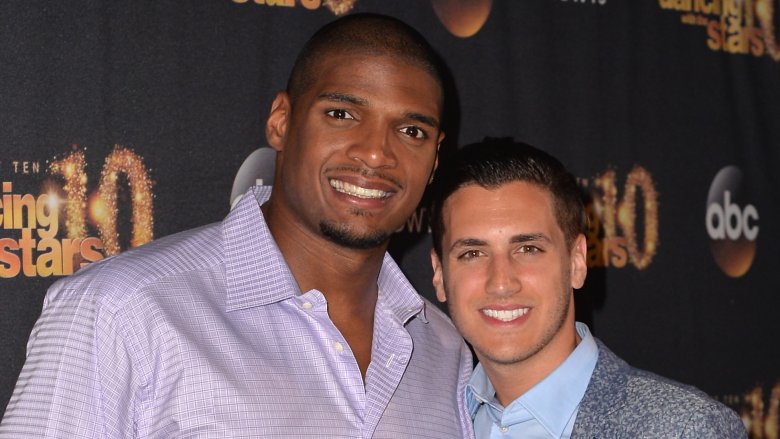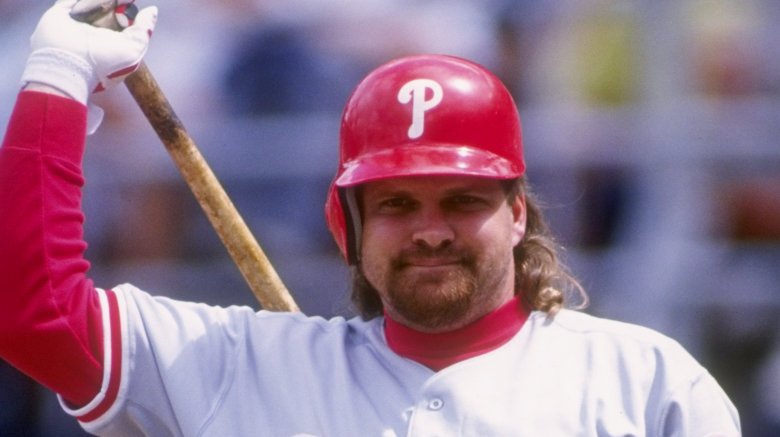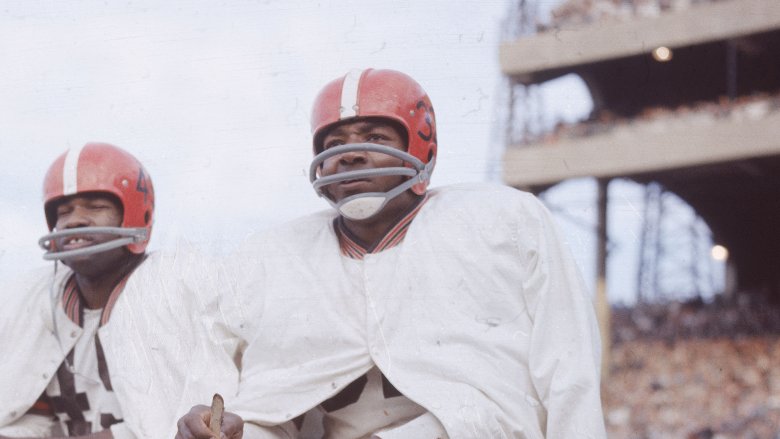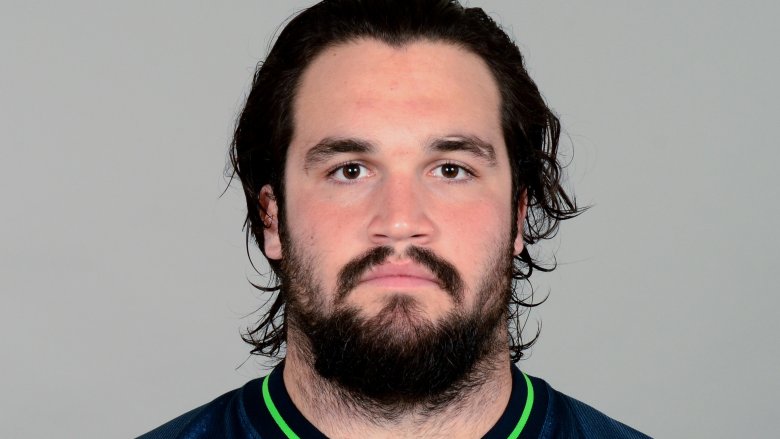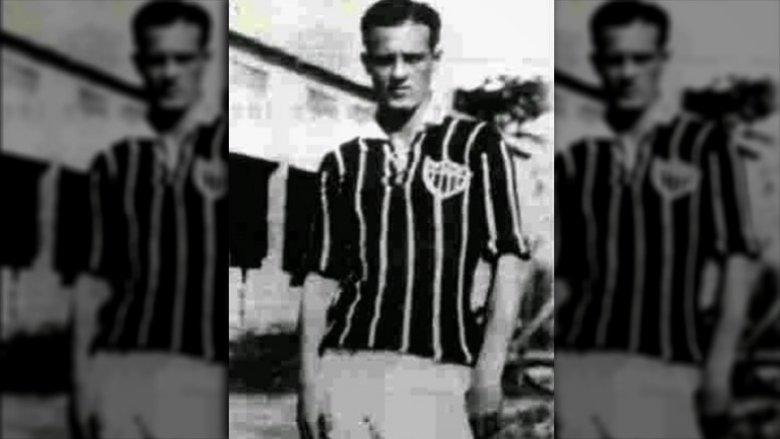The Real Reason These Great Athletes Quit Their Sports
Most athletes try to keep playing their sport until the bitter end. Sure, there's the money and the fame that would be hard to give up, but there's also the no-quitting attitude that coaches and overenthusiastic parents have beaten them over the head with since they were in kindergarten. It's one reason you usually see athletes try to play well past the time they should have thrown in the towel, after injuries, surgeries, and all kinds of hints that their glory days are behind them.
When most athletes retire, it's because they absolutely have to. But every now and then you get someone who decides to quit on their own, when they have plenty of good years left ahead of them. They're not forced out by injury, but by a conscious decision that sports are no longer what they want to do. And sometimes, they arrive at that decision in really surprising ways.
Bobby Isaac heard a voice telling him to stop
NASCAR driver Bobby Isaac was the 1970 Grand National Series champion and a posthumous inductee to the Hall of Fame. A contemporary sportswriter in the Sumter Daily said Isaac "came up the hard way" and became a champion "against the odds." Overcoming "all the hard luck one man could stand in a lifetime," he won 37 races and made almost $500,000 in 1970s money.
But in 1973, he had what NBC Sports calls "one of the most abrupt retirements in NASCAR history." During a race at the Talladega Superspeedway, Isaac's friend, racer Larry Smith, was killed in a wreck. But Isaac claimed he hadn't heard about that yet when a "strange voice" told him that he needed to get out of his car or something bad was going to happen to him. So Isaac radioed his team owner and told him to get someone else to finish the race for him. Then Isaac pulled into the pit, got out of the car, and retired. At the time he said, "I know how it feels to be champion, and now I know how it feels to quit."
Despite saying he was done, Isaac would return to the sport the next year in a limited capacity, only participating in 19 more races. But he should have listened to that voice. Almost four years to the day after he retired the first time, God had him retire permanently. Isaac severely overheated during a race, collapsed on the track, and died a day later.
Bjorn Borg didn't think it was fun anymore
The late '70s were a great time for men's tennis. You had big personalities like John McEnroe and Jimmy Connors, but if you wanted a little eye candy, you could watch Swedish player Bjorn Borg. Encyclopedia.com mentions his "flowing blond locks" and "soft-spoken mystique" that "stole the hearts of many a teenage admirer" (and lots of older admirers as well). Borg was also extremely good at tennis. He was number one in the world in 1979 and 1980, racking up the most consecutive wins in tennis history at the time.
But in 1981 things started to go a bit pear-shaped. There was Borg's shock loss in that year's U.S. Open, and he only won two more matches in the next two years. By 1982, he realized he was over tennis. Borg told those close to him he was done, and in early 1983 announced it to the world. The decision shocked everyone. Borg was only 26 and while he was in a bit of a slump, people expected him to win again. The Washington Post reported there were rumors his wife made him quit, or that he had to because she had cancer. No one could believe he was no longer having fun, or that he hated the "pressure" and constantly being "nervous."
Borg stayed away from the game for eight years before mounting an "unsuccessful" comeback in 1991. By then he was simply too old, so he joined the senior circuit for a little while.
Alex Higgins got drunk and angry
Snooker (a variation on billiards that is especially popular in the U.K.) doesn't seem like the kind of sport that would produce larger-than-life personalities. But Alex "Hurricane" Higgins got his nickname for a reason. A brilliant player and two-time World Champion, Live Snooker called him a "volatile personality" who was always getting into fights.
Perhaps nothing beat the first time he retired in 1990, however. During a major tournament, Higgins lost his first-round match. This might have been because, according to witnesses, he'd slammed 27 screwdrivers over the course of the game. According to Black Farce and Cue Ball Wizards: The Inside Story of the Snooker World, on the way to the scheduled press conference after the match, Higgins punched a press officer in the stomach. It was completely unprovoked and, apparently, nothing personal. Then he started talking at the reporters, slurring his words. Higgins immediately announced he was retiring, saying he didn't want to be part of a "cartel." He said snooker was the "most corrupt game in the world" and that the prime minister should look into it. He continued to ramble on for quite a while, making little sense.
The media accounts of the incident read like "obituaries." Regardless of whether Higgins was serious about retiring, the decision was made for him when he was suspended for a year for various offenses, including threatening to have one of his competitors shot. Higgins eventually returned to the sport but was a shell of his former self.
Kim Clijsters wanted a personal life
Kim Clijsters was a child phenom in tennis. By the time she was 23, she had already been playing professionally for 10 years and had racked up 34 career singles titles, including wins at the 2002 and 2003 WTA Championships and the 2005 U.S. Open, according to the Washington Post. She'd been #1 in the world for 19 weeks and was still ranked #4. But even in a young body, the injuries were starting to get annoying. Clijsters' muscles were stiff and aching, she hurt her wrist and hip, and she had back pain. She described the cycle as "constant injuries and continual rehabilitation."
When Clijsters announced her very early retirement in 2007, she did say the injuries made it "difficult to go on." But there was a bigger reason for her decision. Clijsters wanted a "new life," and while that included relaxing, playing with her dogs, and spending time with family and friends, what she really wanted was "marriage" and "children." She already had one broken engagement behind her and was scheduled to marry her basketball player fiancé that summer. They would end up having a kid just a year later.
The Guardian reported Clijsters was happy being retired but agreed to play a charity match, and then "the hunger for more [came] automatically." Since she was still only 25, a comeback wasn't crazy. She had a great second run, winning two more U.S. Opens in 2009 and 2010, before eventually retiring for good.
Carlos Roa had to prepare for the end of the world
Goalkeeper Carlos Roa started playing soccer professionally in 1988, age 19. But according to These Football Times, his big break came in 1997, when he joined Spanish side Mallorca. An astonishingly good showing for Argentina in the 1998 World Cup cemented his sudden greatness. Goal reports that Manchester United, one of the biggest clubs in soccer and then home to an in-his-prime David Beckham, offered Roa $10 million to come play for them in 1999.
But Roa gave it all up at just 30. A devout Seventh-day Adventist, he thought the upcoming millennium meant the End of Days. Roa announced his retirement from the sport so he could go "prepare for the end of the world, in a place where [God] will provide everything." That place turned out to be a tiny mountain village in Spain, where Roa lived in almost complete isolation with just his family. It took a newspaper six months of searching to track the ex-player down. At the time, he told the reporter, "I don't miss football at all."
Obviously, there was no apocalypse. But Roa wasn't a sore loser, happily returning from his village to the sport he'd abandoned. His religious experience changed him, though. He refused to work on Saturdays anymore (the Adventists' holy day), meaning he had to miss a lot of matches, and he never managed to recapture his past glory, playing at a lower level than before.
Michael Sam put his mental health above playing
Michael Sam became a household name in 2014, when he became the first openly gay player to be drafted into the NFL. It was a big deal, considering sports, especially football, were still a macho and often homophobic realm. But what was supposed to be a breakthrough moment didn't go as planned. Sam played in some preseason games for the St. Louis Rams and then joined the Dallas Cowboys' practice squad that season, according to the Latin Times. Then he moved to the Canadian Football League, a massive step down. (CBS Sports says he was the first openly gay player in the CFL as well.)
Even that didn't work out, though. Sam left the team for 18 days to deal with "personal matters." There were rumors it had something to do with breaking up with his boyfriend. The rest of the team wasn't thrilled with what they saw as "preferential treatment" for the "American prima donna." They saw the leave of absence as Sam "[walking] out on his teammates." When Sam returned, he said he was "always coming back" and that the personal matters were "all taken care of." But he didn't play in the next six games, and when he finally did, he was abysmal.
A week later, Sam announced via Twitter that he was going to "step away from the game." He explained that the last year had been so hard that he was concerned about his mental health. While he dangled the idea of returning eventually, he hasn't as of this writing.
Ta'u Pupu'a had a big voice in that big body
Ta'u Pupu'a immigrated to America from Tonga when he was 5. Coming from a poor family, he did what many before him had tried and turned to sports to improve his life, according to CNN. Football paid for his college education. It turned out Pupu'a was a good enough defensive lineman to go pro, and he was drafted by the Cleveland Browns.
Life was good, until one day in practice a teammate stepped on Pupu'a's foot, crushing his arch. The injury made him reconsider everything, and on a rainy day he "looked up to the heavens" to ask what his real calling was. Pupu'a says a voice replied, "Move forward. Move to New York and go and sing." So he retired from football and became an opera singer.
Obviously, it wasn't that easy. You don't get to just walk onto a stage and start singing any more than you get to walk onto an NFL field and start tackling people. Pupu'a went to New York City and worked in a restaurant for three years, just because it was across the street from the Metropolitan Opera. Finally, at an autograph signing for an opera singer, a professional took an interest in Pupu'a. She landed him an audition at Juilliard and out of 100 people, he was one of three that got in. Plus they gave him a scholarship.
He's now a tenor, singing opera professionally and taking "great joy in sharing his gift with the world."
John Kruk tried to sneak away unnoticed
There was a time when baseball players could get away with being overweight smokers. Most people would think that ended with the Babe Ruth era, but John Kruk proved it could be done right up to the new millennium. When he retired unexpectedly in 1995 after 10 years in the majors, the South Florida Sun-Sentinel commented on his size, his cigarette use, and his less-than-impressive hygiene. They also mentioned he had a great batting eye, which was magnanimous of them.
Kruk probably decided to end his career because of some knee pain, but it would have been nice if he'd warned everyone. Instead, in order to not make a "big deal" out of retiring, he just left in the middle of a game. On July 30, 1995, Kruk's White Sox were facing the Orioles. His manager knew Kruk didn't want to leave until he got one last hit, so he put the soon-to-be ex-player in as the designated hitter. Kruk played his at-bat in the first inning like it was "the seventh game of the World Series." He got his hit and "hobbled" to first base.
When the inning was over, Kruk said goodbye to his teammates in the dugout, got in his car, and drove to West Virginia. He'd left a message for the media saying, "The desire to compete at this level is gone. When that happens, it's time to go." Kruk finished with a nice round .300 lifetime batting average.
Jim Brown picked Hollywood fame over NFL fame
Before the Cleveland Browns became the saddest name in sports, they were an NFL team to be reckoned with. Sure, it was a long time ago, but it did happen. One of the players that made them a success was fullback Jim Brown. According to a New York Times article from 1966, in his nine-year career, Brown was "the leading ground-gainer in pro football history," won the rushing championship eight times, and was the league MVP three times. In 1966, he still had a year to go in his contract and would have earned $60,000, which was a lot of money.
But the Undefeated says Brown was "bored" of football and had discovered Hollywood. During the 1966 offseason, he took part in his second movie, The Dirty Dozen. It was filming in London, and like many productions, it had delays. This meant Brown would still be filming when he was supposed to report to the Browns training camp.
The owner of the team, Art Modell, made it clear Brown had to choose Hollywood or the NFL. Modell said if Brown didn't show up to camp on time, he'd be suspended without pay. Brown didn't make it, so Modell started fining him $100 a day as well. Brown's hand was forced, so he wrote a letter to Modell saying he was retiring at 30. A few days later Brown held a news conference announcing it to the world, saying he wanted more "mental stimulation" than football gave him.
John Moffitt wasn't willing to risk his health for money
While not as famous as some of the other folks here, in 2013, Denver Broncos guard John Moffitt was only 27 and was doing well. He had a year left on his contract worth $1 million and at the end of the season would have spent enough time in the NFL to get various benefits after he retired, according to the New York Times. Instead of waiting just a few months, Moffitt retired mid-season, even though his team was expected to make it to that year's Super Bowl. (Had he stayed, Moffitt would indeed have gone to Super Bowl XLVIII, although the Broncos got their butts kicked by the Seahawks, 43-8.)
But he had good reason for leaving. In just three seasons, he'd hurt his shoulder and knee, and had undergone elbow surgery. He had sleep apnea, and his vision was slightly messed up from all the hits to the head he'd taken. Mid-season, Bleacher Report says he suddenly "failed to report to the Broncos," then the next day announced on Twitter he was retiring. Moffitt told reporters he was "not happy" and that he thought it was "madness to risk your body, risk your well-being and risk your happiness for money." He said he wasn't willing to do that anymore, and also realized he didn't "need to be a millionaire." While Moffitt said he didn't want to be the "poster boy" for someone who left over worries about brain injury from repeated concussions, he thought it was a "valid point." Moffitt also accused the NFL of "merchandising human beings." He was done with it.
Mário de Castro wasn't a fan of murder
Pele is the most famous Brazilian soccer player of all time, but there's a good chance he would have been eclipsed by Mário de Castro (who went by "Oriam"), if he hadn't retired when he was just 26. Instead, no one has ever heard of the athlete with the best goals-to-game ratio ever. De Castro scored 195 goals in 100 matches, a record that will probably never come close to being broken. According to A Halftime Report, De Castro played his entire astonishing career with Atlético Mineiro. But the Guardian says he missed out on representing Brazil at the 1930 World Cup, stubbornly refusing to go when he wasn't first choice.
De Castro had only been playing for five years when Atlético met Villa Nova in their last game of the season. His team needed a win in order to get the 1931 Mineiro Championship title. At halftime it looked like a disaster, with Villa Nova up 3-0. But the second half saw De Castro score a whopping four goals, getting the win and the title. Obviously, a match like that makes people go a bit crazy. The celebrations apparently got "wildly out of hand," escalating until one of Atlético's directors shot and killed a Villa Nova supporter. De Castro, like any normal person would be, was "shocked and outraged" over the murder and said he'd never play for the club again. Instead of moving to another team, he quit the game altogether and went on to practice medicine for 22 years.
